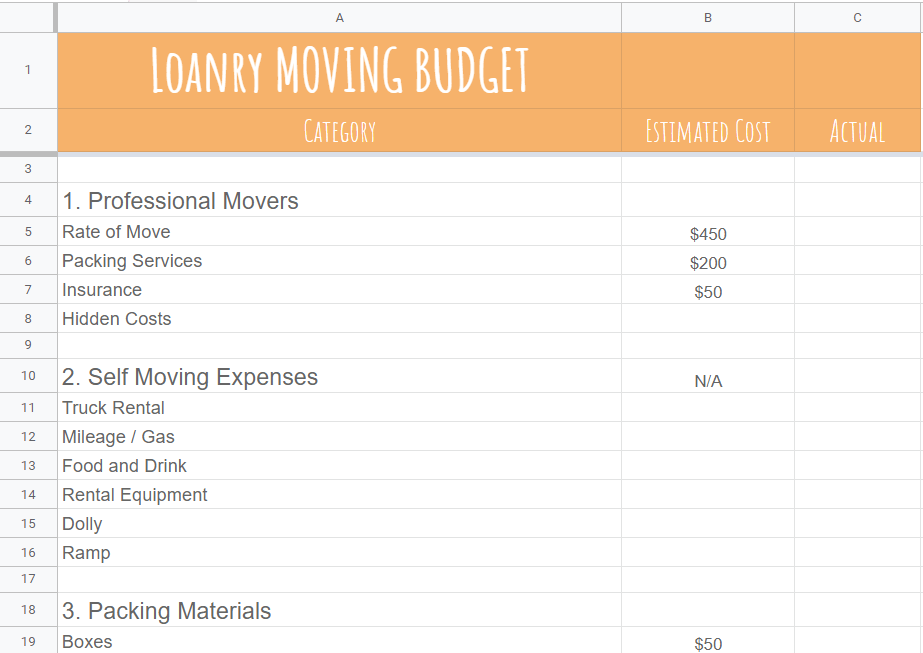Tax-deductible moving expenses.
Navigating Moving Expenses: Tips for a Budget-Friendly Relocation

Navigating Moving Expenses: Tips for a Budget-Friendly Relocation
Moving to a new home can be an exciting yet challenging experience, especially when it comes to managing the associated expenses. From packing supplies to transportation costs, the financial aspects of relocation can quickly add up. In this article, we’ll explore practical tips to help you navigate moving expenses and ensure a budget-friendly relocation.
1. Create a Detailed Moving Budget
Before you start packing boxes, take the time to create a detailed moving budget. Consider all potential expenses, including packing materials, transportation, and any professional moving services you may need. Having a clear budget will help you prioritize expenses and avoid unnecessary financial stress during the moving process.
2. Purge Unnecessary Items
As you prepare for your move, use it as an opportunity to declutter and purge items you no longer need. Hosting a garage sale or donating gently used items not only lightens your load but can also provide some extra cash or tax deductions. The fewer items you move, the lower your transportation costs will be.
3. Compare Moving Quotes
If you’re hiring professional movers, don’t settle for the first quote you receive. Take the time to compare quotes from different moving companies to ensure you’re getting the best value for your money. Consider factors such as services offered, insurance coverage, and customer reviews. This research can help you make an informed decision and potentially save on moving expenses.
4. Optimize Packing Materials
Purchasing new packing materials can be a significant moving expense. Look for cost-effective alternatives, such as collecting free boxes from local stores or using items you already have, like suitcases and bins, to pack your belongings. Be resourceful in finding packing materials to reduce costs without compromising the safety of your items.
5. Plan Your Moving Day Strategically
Choose the timing of your move wisely to potentially save on expenses. If possible, opt for a mid-week or mid-month move when demand for moving services is lower, leading to potentially lower rates. Additionally, consider scheduling your move during off-peak seasons to take advantage of better pricing from moving companies.
6. Explore DIY Options
For those with a tighter budget, exploring do-it-yourself (DIY) moving options can be a cost-effective choice. Renting a truck and handling the packing and loading yourself may require more effort, but it can significantly reduce the overall cost of your move. Enlist the help of friends and family to make the process smoother.
7. Check for Employee Relocation Benefits
If your move is job-related, check with your employer about potential relocation benefits. Some companies offer financial assistance or reimbursement for moving expenses as part of their employee relocation packages. Understanding these benefits can help you leverage available resources and reduce out-of-pocket costs.
8. Research Tax Deductions
In certain situations, moving expenses may be tax-deductible. Check the tax laws in your country or region to see if you qualify for any deductions related to your relocation. Keep detailed records of your expenses, including receipts, to ensure
